Self-Description:
I am currently professor at the Institute of Biology at the University of Graz (Austria). From 2001-2006 I started to found a research group working in the national and international research grants we acquired. After my stay in the U.S. (ETSU) in 2007, I founded the Artificial Life Laboratory as a part (research lab) of the Department for Zoology. Since then, I act as lab supervisor in this lab.
My research interest has always been on complex adaptive systems, which could be natural systems, like animal swarms, herds or flocks, or artificial swarm systems, like robot swarms or transportation networks. I am fascinated by the features of swarm intelligence, collective decision making and self-regulation in natural organisms most prominently in honeybees, but also in other social insects or organisms. Phenomena like self-organization, phase transitions, emergence, and pattern formation are the key features that interest me in these systems. My method is to decompose these focal systems into their intrinsic networks of component interactions, in order to reveal the governing feedback loops at the core of these systems. These insights allow me to decompose these systems into „functional building blocks“, a perspective that generates a fundamental understanding of these systems. These functional building blocks can be easily translated and recombined to create systems in other domains, like robot swarms, morphogenetic agents or bio-inspired algorithms.
My second field of research is ecology and evolution. I approach topics in these fields mainly with mathematical models and computer simulations. I teach these subjects intensively and approach this topic also in many of my research projects on evolutionary computation algorithms, evolutionary robotics, modular and reconfigurable robotics as well as in other typical research projects that reside within the scientific field of Artificial Life.
Ultimately, I plan to bring these research interests together by aiming for an unified concept that I call „Ecosystem Hacking“, which aims at combining my diverse research interests in order to create novel bio-hybrid systems that are partially living (organisms) and partially artificial (robots), building new „biohybrid animats“ for monitoring, for supporting and for repairing the broken ecosystems of today’s biosphere.
Self-Description:
I am currently a senior researcher at the Artificial Life Lab of the University of Graz and project coordinator of ROBOCOENOSIS and BioDiMoBot, two EU-funded research projects in the fields of biohybrid systems and autonomous biodiversity monitoring. My scientific background is rooted in biology, with a strong interdisciplinary focus that bridges behavioural ecology, physiology, and robotics.
In addition to my current roles, I have contributed to several other European research initiatives, including I-SWARM, SYMBRION, REPLICATOR, CoCoRo, subCULTron, ASSISIbf, and HIVEOPOLIS. In these projects, I have worked on the development of bioinspired algorithms, swarm robotics, and evolutionary models for artificial organisms, often taking the role of principal investigator or scientific (co-)coordinator.
My research explores the complex interactions between behaviour, physiology, and ecology, and how methods like modelling and robotics can be used to gain insights into the organisms, their ecosystems, and the dynamics linking them. I consider both the investigation of biological systems themselves and the development of innovative methods—particularly autonomous, long-term, field-deployable systems generating big data from observed biological systems—as central research topics with relevance to both scientific research and practical application.
My expertise spans experimental ethology and physiology (both in the lab and in the field), biohybrid systems, theoretical biology, ecological modelling, swarm and underwater robotics, and autonomous monitoring systems. I am actively involved in interdisciplinary research coordination and the transfer of knowledge into application-oriented innovation.
Beyond my scientific work, I engage in teaching at the University of Graz, where I cover topics such as science theory, programming, data analysis, and modelling.
Projects:
BioDiMoBot, Robocoenosis, HIVEOPOLIS, ASSISIbf, subCULTron, CoCoRo, REPLICATOR, SYMBRION, I-SWARM,
Gerald Radspieler
Researcher/Project management
Self-Description:
I am primarily concerned with the internal and external administration of the lab’s national and EU projects and the management of its IT resources. Additionally, I contribute to the design and evaluation of scientific experiments, especially with control software and automated evaluation of experimental results (e.g. visual object tracking, thermographic imaging). My primary research field is the ethology of social insects both in living organisms and computer simulation.
Projects:
Honeybee aggregation, Rebodiment, subCULTron, ASSISIbf, HIVEOPOLIS, Robocoenosis, RoboRoyale
Self-Description:
In 2014 I finished my Bachelor Thesis at the Artificial Life Laboratory, in 2019 my Master’s Thesis in behavioral physiology followed. In my Master Thesis I worked on various forms of pattern formation in biological and artificial systems. Currently I am a PhD student, employed by the COLIBRI inniative. I am involved in the projects ATEMPGRAD and HIVEOPOLIS and also work on the Primordial Particle System.
Projects:
ASSISIbf, Primordial Particle Systems, HIVEOPOLIS, ATEMPGRAD, RoboRoyale
Self-Description:
I am a transdisciplinary designer and researcher. I specialise in digital and biological technologies to build biohybrid structures that support human and nonhuman life forms.
I hold a master’s degree in computation in architecture from the Royal Danish Academy’s CITA Studio. My master’s work involved advanced material design techniques, particularly fused filament deposition, aimed at rethinking architectural spaces to accommodate non-human species. I finished my PhD in June 2024, at the Institute of Architecture and Media Technical University of Graz, also as part of the COLIBRI team (Complexity of Life Basic Research and Innovation) in Uni Graz. My PhD research centred around developing a mycelial beehive, a significant innovation within the FET-EU project HIVEOPOLIS. This work was also the principal subject of my dissertation and was detailed in six out of my seven published papers. In our lab, I engage in ethology and biology research and complex modelling, expanding on methodologies and design philosophies that intersect honeybee biology, hive design, biofabrication with bioplastics and mycelium, and computational modelling.
Furthering my commitment to transdisciplinary and multispecies collaboration, I co-initiated the annual I.N.S.E.C.T. Summercamp in 2022. This initiative is in its 4th year and through a co-creative and inclusive approach it also promotes biohybrid design methodologies across both academic and non-academic communities.
Projects:
Self-Description:
In 2024 Wiktoria completed her PhD with the focus on animal behaviour and physiology in the context of underwater monitoring systems. Her focus was Daphnia, a small planktonic crustacean, known for being an excellent bioindicator. Studying its behaviour was expanded upon with the use of automated observation. Daphnia’s swimming behaviour provides an insight into the very complex natural water habitats. This way, we can read the overall water quality and the well-being of the organisms inhabiting the lake. The dissertation focused on developing the methodology for using this concept for long-term automated monitoring and moving with observation into the field.
Projects:
Self-Description:
Johannes Diebold has studied mechanical engineering at TU Graz and TU Wien. He joined our lab as a researcher to add technical expertise to the group. He has previous experience in thermodynamics, fluid dynamics, machining processes, wear phenomena and mechatronics. Motivated by over 10 years of birdwatching experience, and by his interest into wild bees, he is keen on enhancing understanding of animal behaviour using the methods of the Artificial Life Lab.
Projects:
Self-Description:
Daniel Hofstadler obtained his MSc in Botany from the University of Graz in 2013. In his thesis, he developed a model for self-organizing mycelial growth. He holds a BSc in Plant Physiology, has studied Computational and Systems Sciences on the side. He currently works on his PhD exploring appropriate machine behaviour in plant-robot bio-hybrids. He worked in the EU-funded projects FLORAROBOTICA and HIVEOPOLIS.
Projects:
Self-Description:
As a PhD student in the Robocoenosis and BioDiMoBot projects, I am currently developing different methods to use animals as environmental sensors for an aquatic biohybrid system. My focus in the project is on behavioural analysis of bivalves and assessment of aquatic plankton diversity. Prior to my PhD, I worked on comparative morphology for my Bachelor’s and part of my Master’s degree. For my Master’s thesis I switched to molecular phylogenetics of scaphopods. During this time I also worked at the Natural History Museum of Vienna on a project to study the diversity of aquatic trematodes in Austria. I also worked on a project for the City of Vienna on the conservation of breeding birds.
Projects:
Self-Description:
I studied Marine Biology at the University of Rostock, where my research focused on the ecological interactions between macroalgae and their environment. For my master’s thesis, I investigated how epibiont growth affects the photosynthetic activity of kelp (Laminaria hyperborea) through fieldwork on Helgoland.
Before joining the Artificial Life Lab, I worked as a scientific diver, diving instructor, and eco-tour guide, combining science communication, conservation, and hands-on field research. Within the BioDiMoBot project, I am excited to contribute to the development of biohybrid sensors for aquatic ecosystem monitoring, combining biological insight with innovative technology to improve long-term environmental observation.
Projects:
Valerin Stokanic
Student
Self-Description:
I come from a physics background and focus on the physical description, numerical analysis, and modeling of biological systems. My research applies principles from statistical physics to understand the complex biological behaviors of honeybees, which also was the topic of my undergraduate thesis.
I continued my academic journey with a graduate program in space sciences and plasma physics, writing my thesis on the topic of satellite laser ranging and adaptive optics.
Projects:
Ifeoma Grassl
Student
Self-Description:
Ifeoma Grassl is assisting biologists of the Artificial Life Lab in conducting their research projects. This mainly includes conducting experiments on honey bees and proofreading.
Projects:
Laurenz Fedotoff
Student
Self-Description:
I did my bachelor in biology at the Karl-Franzens University and my bachelor thesis in the Artificial Life Lab. During the work on my bachelor thesis I found an interest in programming and working with data. This is why I started programming with Python with a focus on data science and machine learning. Currently I am pursuing my master’s degree in behavioral physiology and working on my master thesis with a focus on deep learning based automatised behavior detection. Additionally, to my master’s degree I am pursuing a bachelor’s degree in computer science to improve my skills in machine and deep learning and also to understand the mathematics necessary to use those methods. My goal is to fuse the domain knowledge that I gain through my master’s degree with the know-how about programming and machine learning and apply this in form of digital biology for fully automatized behavior analysis.
Projects:
Benjamin Hirschbok
Student
Self-Description:
I am currently studying biology at the University of Graz and I am interested in computational science and applying AI in biology. My work in the RoboRoyale project entails studying and understanding different behaviours of the honeybee queen using neural networks.
Projects:
Nicole Koller
Student
Self-Description:
I am a student at the University of Graz, currently finishing my bachelor’s degree. My interest in joining the lab stemmed from a desire to expand my programming skills, particularly in python. In the lab, I contribute to the development of neural networks aimed at identifying behaviors of honeybee queens. This project allows me to combine my passion for programming with behavioral research, offering valuable insights into the fascinating world of honeybee dynamics.
Projects:
Doris Kollegger
Student
Self-Description:
I did my Bachelor in Biology at the University of Graz, where I developed an interest in animal behavior as well as a little bit of programming. In my Bachelor Thesis I dealt with Braitenberg Vehicles, and the resulting behaviors, if different typs of vehicles came together. Currently I am doing my Master in Behavioral Physiology. For my Master Thesis I work in the Project Robocoenosis, where I work with aquatic lifeforms and look at their behavior.
Projects:
Former Staff
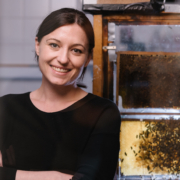
Martina Szopek
Martina Szopek was a postdoctoral researcher and project manager in HIVEOPOLIS. She did her PhD within the frameworks of the EU-funded projects ASSISIbf and HIVEOPOLIS, researching the modulation of behaviour in honeybees. The main emphasis of her work was on the investigation of swarm-intelligent behaviour in honeybees, mainly collective decision making and emerging group-level behaviours, and the influence of various physical stimuli on the bees‘ collective behaviour.
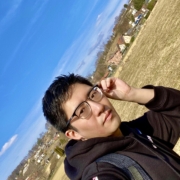
Shiyi Wang
Shiyi was a Ph.D. student at the Swarm & Computational Intelligence Laboratory (SwaCIL) UK, under the supervision of Dr. Farshad Arvin. Meanwhile, he joined the Project RoboRoyale at the Artificial Life Lab in Graz and work with the ASSISI platform. His research interests include swarm robotics and machine learning. His research is about bio-inspired aggregation with a robot swarm using a self-built open-source platform.
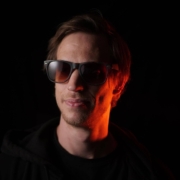
Philipp Delanoy
Philipp was a technical assistant in projects HIVEOPOLIS, RoboRoyale and Robocenosis.
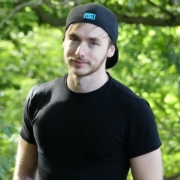
Michael Vogrin
Michael Vogrin was researching social systems in biology and psychology using agent-based models. He focused on modern forms of mating behavior in humans (dating apps) and research on opinion forming and the confirmation bias.

Stefan Schönwetter-Fuchs-Schistek
Stefan Schönwetter-Fuchs-Schistek was working as a technical assistant at the Artificial Life Laboratory.
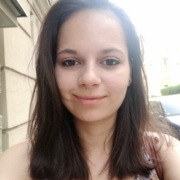
Dajana Lazic
Dajana Lazic was conducting her Master’s Thesis in modelling the foraging behavior of honeybees and researching the effect of waggle dancing robots.
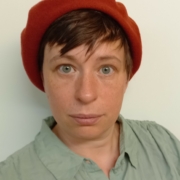
Sarah Schönwetter-Fuchs
Sarah Schönwetter-Fuchs was working on her Master thesis on temperature related behavior of honeybees at the Artificial Life Laboratory.
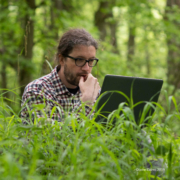
Matthias Becher
Matthias Becher was a PostDoc in HIVEOPOLIS, working on honeybee models.

Payam Zahadat
Payam Zahadat received her Master and PhD degrees in Artificial Intelligence (Computer Science and Engineering) from Shiraz University, Iran in 2005 and 2011 respectively. For a duration of one year (2009-2010) during her PhD, she worked as a research assistant at the Modular Robotics Lab, the Maersk McKinney Moller Institute, University of Southern Denmark. She had a postdoc position at the Artificial Life Lab of the Department of Zoology, University of Graz since 2011, and for half a year (2018-2019) at the IT University of Copenhagen. Currently she is a university assistant (officially translated and loosely equivalent to assistant professor) in the University of Graz. During the last years, she has worked in the EU-funded projects florarobotica, ASSISIbf, CoCoRo, SYMBRION and REPLICATOR. Her research interests include both theoretical studies and applications in the field of swarm/multi-modular robotics and systems, self-organization, evolutionary algorithms and evolutionary robotics, and gene regulatory networks.

Bianca Pichler-Thier
Bianca Pichler-Thier earned her bachelor degree in Zoology in 2006. She was employed as Project Assistant at the Artificial Life and also provided the honeybees for the experiments in the lab.

Joshua Cherian Varughese
He worked as a PhD student on the project SubCULTron. His field of research is bio inspired swarm robotics, swarm intelligence, multi agent systems etc. He is an Electrical Engineer (B.Tech Hons.) from National Institute of Technology Jamshedpur. After having worked with painting robots at Maruti Suzuki India Limited, he did his masters from National University of Singapore (NUS) in Mechatronics.
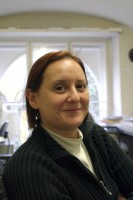
Sibylle Hahshold
Sibylle Hahshold was a PhD-student, EU project manager and member of the scientific staff of the Artificial Life Lab. She finished her master in Biology in 2008 at the Departement of Zoology, University of Graz, Austria. She was researcher in the FWF funded project: "Temperature-induced aggregation of young honeybees: Individual behaviour vs. collective behaviour, and project manager and researcher in the EU-FP7 project "CoCoRo" and the EU-FP7 project "ASSISIbf". Her main research interests are collective behaviour and decision making in honeybees.
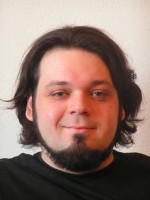
Michael Bodi
Michael Bodi received his masters degree in Zoology from the University of Graz in 2012. He worked on his master thesis within the framework of the EU-Project CoCoRo and conducted research in the EU-project ASSISIbf. The main emphasis of his work is on the investigation of Bio-inspired aggregation and decision-making systems.
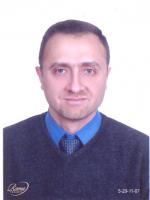
Ziad Salem
Ziad Salem was employed as a Post-Doc researcher in the ASSISIbf Project. He received his PhD degrees in the Artificial Intelligence Laboratories, from the Systems Engineering division, Cardiff School of Engineering, Cardiff, University Cardiff, UK in 2002. During his PhD, he worked as a systems manager at the Manufacturing Engineering Centre at Cardiff University. He worked as an Associate Professor at the Aleppo University, Electrical and Electronic Engineering Faculty, Computer Engineering Department. He also worked as Associate Professor at the American university of Nigeria, computer Science department. He participated in a number of European projects such as Tempus and Erasmus. His research interests include machine learning, data mining, rules induction, evolutionary algorithms, swarm intelligence, information technology.
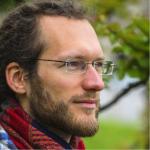
Hannes Hornischer
He received my masters degree in Physics form the Georg-August Universität in Göttingen, Germany in 2016. In his master thesis he worked on "Causal Entropic Forces: Intelligent Behaviour, Dynamics and Pattern Formation" at the Max-Planck Institute for Dynamics and Self-Organization where he investigated fundamental mechanisms underlying cognitive intelligent behavior.
He did his PhD at the Institute of Systems Sciences, Innovation and Sustainability Research in Graz and worked as a member of the project subCULTron. His academic focus is on both understanding and inducing self organization in social systems and swarms.
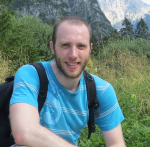
Nikolaus Sabathiel
He is a theoretical physicist, interested in biophysics, swarm behaviour, nonlinear dynamics and complex systems. He obtained his MSc degree in Theoretical Physics at Graz University in 2014. From January 2015 to June 2016 he was working as a scientific employee in the field of Brain Computer Interfaces (BCI) in g.tec medical engineering GmbH.

Daniel E. Moser
Artificial Life Laboratory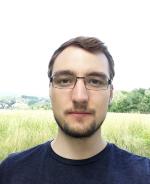
Jan Wille
In 2017 he finished his bachelor’s degree in biology at the University of Bielefeld. Currently he is studying his master in ‘Verhaltensphysiologie’ (behavioural physiology) at the University of Graz. His work in the Artificial Life Laboratory was about a modelling approach of a paper wasp population, in collaboration with Istvan Karsai.
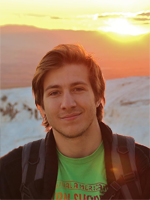
Lukas Hanna
He studies environmental system sciences with focus on economics (USW VWL) at the University of Graz. He finished his bachelor degree in 2014 and was working on his master thesis at the artificial life lab with the topic of slime mold computing.
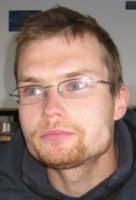
Jürgen Stradner
Jürgen Stradner had a PostDoc position in the projects SYMBRION and REPLICATOR. As his PhD was in the field of biology his scientific background is related with neurobiology, theoretical biology and evolution. His research and interests deal with Artificial Life in the broadest sense. There is evolution, ecology, neurobiology, neuroethology, sensory ecology and ecological evolution on the one - the biological - side. On the other side - the mathematical, interdisciplinary one - there is evolutionary robotics, evolutionary algorithms, artificial neural networks, self-organization, theoretical biology and modelling.
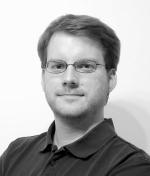
Heiko Hamann
Heiko Hamann received a Master’s degree in computer science from the University of Stuttgart, Germany in 2006 and a PhD in engineering (robotics) from the University of Karlsruhe, Germany in 2008. He was a PostDoc at the Artificial Life Lab Graz of the Department of Zoology, University of Graz between 2009 and 2012 working in the projects SYMBRION and REPLICATOR funded by the European Union. Now he is with the Department of Computer Science, University of Paderborn, Germany. (see also heikohamann.de)

Olga Kernbach
Olga Kernbach was a PostDoc researcher in the ASSISIbf project funded by the European Comission. In 2011 she received a PhD degree in computer science (robotics) at the University of Stuttgart, Germany. She was involved into former projects, such as SFB467 (German DFG), TFB059 (German DFG), I-SWARM (EU), Golem (EU) and REPLICATOR/SYMBRION (EU). Her main research interest is collective robotics, self-organization in artificial collective systems, collective behaviour and decision making in robotic swarms.
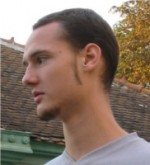
Christoph Möslinger
Christoph Möslingers work at the Artificial Life Lab comprised simulations and experiments with robotic swarms. He joined the Artificial Life Lab in 2005 as an internship of his study course at the University of Applied Sciences in St. Pölten, Austria. Since then he has co-authored several papers concerning simulations and experiments with swarm robots and also helped to construct, maintain and demonstrate a real robotic swarm. His research focuses on swarming behaviour, distributed sensor networks and communication-less algorithms for small and simple swarm robots. Withing the framework of the EU-project CoCoRo he developed a communication-less flocking algorithm to be used in autonomous underwater vehicles (AUVs).
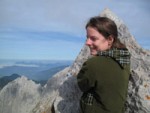
Daniela Kengyel
In 2005 Daniela Kengyel started at the University of Applied Sciences in St. Pölten, Austria, as a student in the field of computer simulations. She joined the Artificial Life Lab in 2008 to work for her diploma thesis in the project Thermobots . After finishing the diploma thesis in 2009, she continued to work in the field of swarm robotics and on AUV-simulations for the project CoCoRo with NetLogo-3D and worked on her PhD-thesis in the project REBODIMENT .
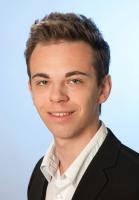
Thomas Kunzfeld
Thomas Kunzfeld is a student of Telematics (or "Information and Computer Engineering") at the university of technology in Graz. Before that and during his first few semesters he had multiple internships at the Artificial Life Lab until he started a steady employment there. He worked mostly with the e-Puck robots in the REBODIMENT project and developed hardware as well as software for this project.
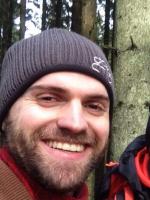
Yannick Oswald
Yannick worked as a research assistant on the publication "Ultimate Ecology: How a Socio-Economic Game Can Evolve Into a Resilient Ecosystem of Agents". The project was about explaining the emergence of cooperation in evolutionary and life-like populations. Generally, Yannick’s research interests are the emergence of social patterns, transitions, and quantitative and computational social science. (see also yannickoswald.de)

Eva Julia Bauer
Eva Julia Bauer worked on her Bachelor Thesis which concentrated on the evolution of complex behaviour in an multi-agent system that she created with Netlogo.
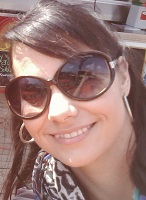
Ina Höfernig
Ina Höfernig was employed as Project Assistant at the Artificial Life Lab and supported the team in administrative affairs.
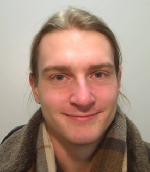
Markus Dauschan
After finishing his Bachelor study "Computational Sciences" he started an interdisciplinary and individual Master Study "Computational Life Sciences". His Bachelor Thesis concentrated on an implementation of a genome based virtual embryogenesis system. He was working on the extension of this system (evolutionary computation, parameter analysis) and its application to virtual and real swarm robots provided by the SYMBRION and REPLICATOR EU projects.
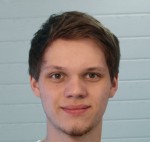
Ralf Mayet
His work in the Artificial Life Lab mainly included designing algorithms, extensions and experiments for the ePuck educational robot and other robotic platforms. In addition he was responsible for the website and communication infrastructure of the CoCoRo project. Web: http://www.ralfmayet.net
